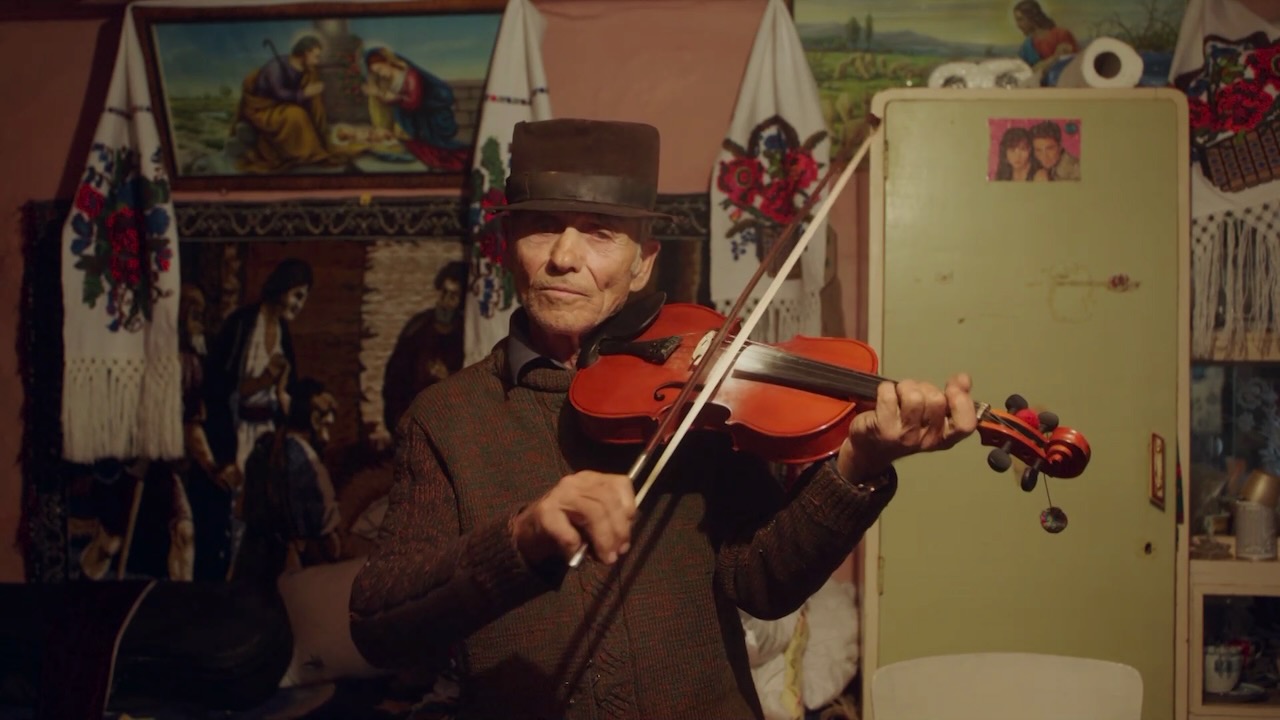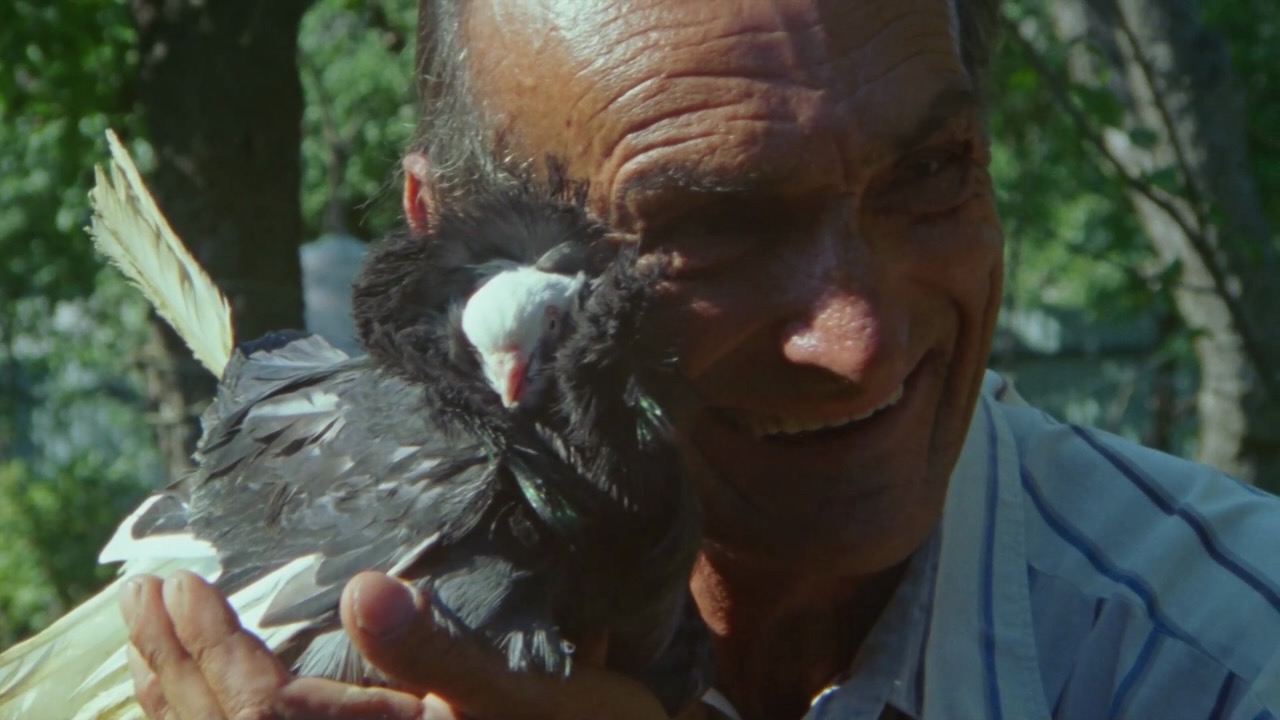I didn’t love Jude’s pandemic movie, but I’m extremely onboard with this one – everything down to the closing credits is delightful. It’s a very cynical movie about Romania and capitalism, starring Radu-regular Ilinca Manolache as Angela, an odd-jobs film-shoot worker.

Angela’s present-day is filmed in grainy b/w, her filtered selfie videos doing misogynist insult commentary are in low-detail digital color, then there’s another Angela who also drives a car for a living, via the 1982 film Angela Goes On, in beautifully restored 35mm color. That movie is the Poor Cow to the main feature’s The Limey, and its Angela appears in present day (the same actress/character) as the mom of a disabled worker hired to tell his story for a company safety video.

Radu Jude in Cinema Scope:
When I was young and reading all these stories about Herzog shooting Aguirre, the Wrath of God or Coppola shooting Apocalypse Now, it sounded so heroic. In the early days, when we were supposed to work 20 hours and then drive to another location, it felt magical and sort of heroic. I don’t see it quite that way anymore. You can fool yourself into thinking this way as a filmmaker, but for the people working around you, it’s not like that at all. They don’t care if your movie is going to win an Oscar, or if it’s going to be a piece of crap. They just want to finish the shooting and go home.
Translation issues:

From the mid-film wordless montage of roadside death markers:

Mark Asch in Little White Lies:
Angela’s set of wheels signify anything but independence: she’s cut off, honked at, catcalled, and constantly slamming brakes, swearing, and flipping off other drivers. HQ keeps her on a leash (her ringtone, signaling the arrival of yet another task, is Beethoven’s 9th, the official anthem of the EU), appealing to her team spirit — and, implicitly, her economic precarity as a project-based worker — as they send her over to the airport to pick up a foreign guest, or to pick up lenses from a backlot where Uwe Boll is shooting a cheap nonunion monster movie.

Cemetery advertising:

Jude again:
I think the film is also a film about Bucharest. Why does Bucharest look so bad today compared to how it looked back then? Some of that is propaganda, as many images and films from that time were produced to show the most beautiful side of Bucharest, which is why I slow down those less beautiful moments from Angela Moves On — so you can see the other side. But even still, Bucharest is in much worse shape now, 30 years after the revolution. How did we let that happen? It’s more crowded now, more polluted—cars are on the sidewalk, buildings are falling down, etc. I read that it’s the second most congested city in the world. I think the film can show this by putting one image next to another, and in doing so maybe propose this question to the viewer.























